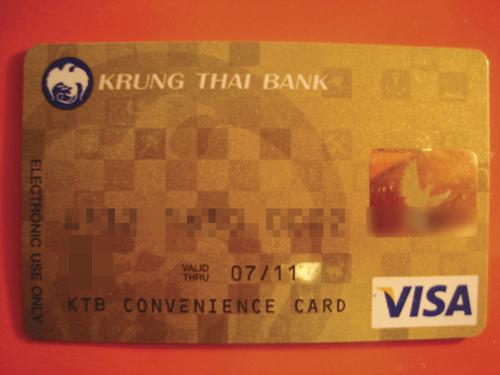Banking for Phuket Expats carries special charges, risks

PHUKET: For expats in Phuket and across Thailand who intend to stay permanently or for most of the year in the country, opening a Thai bank account makes financial sense.
After all, except for a few ATMs owned by AEON (a large Japanese conglomerate) and Citibank, Thai ATMs will charge a 150 baht fee per foreign transaction and there are additional fees charged by the overseas bank for using an ATM outside of their network and for currency conversions. There are also daily withdrawal restrictions (typically US$500 per day).
In other words, the transaction costs of not having a Thai bank account can quickly add up.
Who Can Open a Thai Bank Account?
In general, expats in Thailand will need to have either a work permit or a long-term visa of some kind to open a bank account. In practice, you may still be able to open a bank account without a visa and only with your passport and a local address, but you will likely need a long-term visa to obtain internet banking access, a credit card and a checking account. At the very least, you will need your passport and evidence of a local Thai address (a lease or utility bill).
Thailand Deposit Insurance Protection
Thailand’s Deposit Protection Agency (DPA) provides deposit protection insurance in case of a bank default. Currently and until August 10, 2015, the DPA will insure accounts worth up to 50 million baht (US$1.6mn), but after that, and until August 10, 2016, the amount will drop to 25mn baht (US$800,000) and then to 1mn baht (US$32,600) after August 11, 2016.
Where Should Expats Bank in Thailand?
Thailand’s biggest local banks are Bangkok Bank, Krung Thai Bank (state-owned), Siam Commercial Bank, Kasikorn Bank and Bank of Ayudhya. These banks have the biggest ATM networks and offer the most security for depositors. In addition, major Japanese, European and American banks have a presence in Bangkok, but be aware that their ATM networks will be more limited than those of local banks and not all of them deal with retail customers.
Special Considerations for Expats
Expats need to be aware that while there are no restrictions on the amount of money brought into Thailand, there are restrictions on the amount of baht you can take out and these restrictions are subject to change.
When dealing in cash, bringing in or taking out US$20,000 or the equivalent will need to be declared to Thai customs, while for baht, 500,000 baht can be taken to countries that border Thailand and 50,000 baht can be taken to other countries.
If you intend to do a bank transfer, you will usually need permission from the Bank of Thailand for transfers of more than US$20,000.
Finally, and if you are an American citizen, be aware that if you control any type of foreign financial account(s) with a combined value of over $10,000 at any point of the year, you will need to report it to the Internal Revenue Service (IRS) by filing Form TD F 90-22.1, Report of Foreign Bank and Financial Accounts (FBAR).
You may also have other reporting requirements if your foreign financial accounts hold larger balances.
US Bank Wires into Thailand
One frequent question I get from American clients is how to wire US dollars from a US bank into their Thailand Bank. Because the US has very tight regulations this is not always easy to do. In fact, last week my client tried to wire in US dollars from a major US bank and was told he could not because Thailand is on a restricted country list.
The most efficient way I have found to bring in US dollars is to open a Bangkok Bank account and send the wire to the New York branch. Within 12 hours your money is converted into baht and received into Thailand for a very minimal fee. Simply then use your local ATM card to withdraw cash at no charge.
How Much Should Expats Deposit in a Thai Bank Account?
Unless you intend to buy property or you need to make a bank deposit for a retirement visa, expats in Thailand should consider keeping enough baht on deposit for at least a few months worth of living expenses and enough to cover an emergency, while staying under the limits for deposit insurance coverage and for taking cash out of the country without the need for special permission.
If you are an American citizen, you may want to keep less than US$10,000 in a Thai bank account to avoid additional disclosure paperwork, but you will still need to pay close attention to any changes in IRS rules regarding the disclosure of foreign accounts.
Don Freeman is president of Freeman Capital Management, a Registered Investment Advisor with the US Securities Exchange Commission (SEC), based in Phuket, Thailand. He has over 15 years experience and provides personal financial planning and wealth management to expatriates. Specializing in UK and US pension transfers. Call 089-970-5795 or email: freemancapital@gmail.com.
— Don Freeman
Latest Thailand News
Follow The Thaiger on Google News:


























